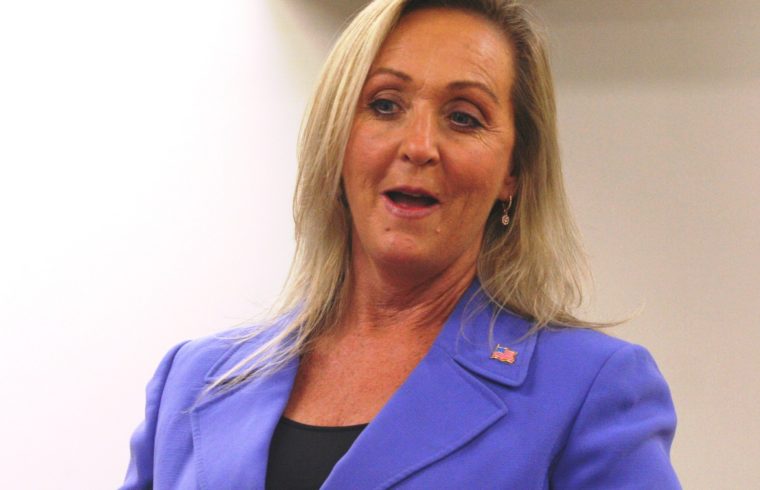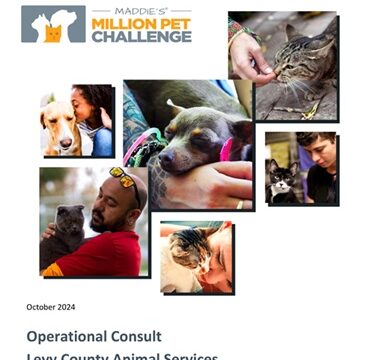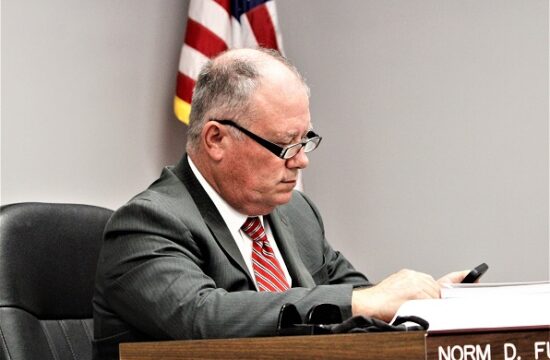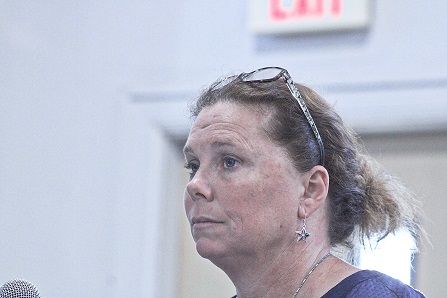Jennifer Pyle, representing the Census Bureau, speaks to the Levy County Commission and visitors.
By Terry Witt – Spotlight Senior Reporter
Every 10 years the U.S. Census Bureau starts counting the population of the United States, a massive task that will determine how many seats each state gets in the United States House of Representatives and how much federal money flows to Levy County.
Jennifer Pyle, a U.S. Census Bureau representative, spoke to the Levy County Commission on Feb. 18 about the importance of Levy County residents participating in the national census to ensure the county gets its fair share of dollars and the county’s population is properly counted. She was invited to speak by Commissioner Lilly Rooks.
When asked how much money is lost when people aren’t counted in the census, Pyle said she was reluctant to quote a number, but she said there was a study that estimated how much money would be lost when a person fails to be counted.
“George Washington University did a study. They estimated that $1,500 per person, per year for 10 years is the dollar amount for each individual that is not counted. That’s millions and millions of dollars,” Pyle said.
On March 12 this year, every household should begin receiving official Census Bureau mail explaining how people can respond online, by phone or through the U.S. Mail. By April 1, every household in the United States should have received mail from the Census Bureau, she said.
“Get the word out there that it’s safe, it’s easy and it’s coming up before we know it. Even though the flag date is April 1, everybody will have a chance to respond through July,” Pyle said.
Pyle said residents are required to respond to the census. She said the census has taken place every 10 years since 1790.
People who use Post Office boxes that don’t match their physical address may not get anything by mail, Pyle said, but census takers will personally deliver the census forms to their home. Census takers are known as “enumerators.” She said it’s a bit complicated when it comes to Post Office boxes.
“I hate to say it depends if your residence is already associated through different venues as far as like other government agencies; it will load those Post Office boxes; there are occurrences where Post Office boxes are separate from a residence. They have identified that house and there will be a person who delivers to that house, so you will either get it in your Post Office box or get it hand-delivered,” Pyle said.
She said the enumerators will hit the ground in May. They are individuals from the community will who go door to door delivering the census questionnaires to people who haven’t “self-responded” online, by phone or by mailing in their census forms. They will wear identification badges. If people have doubts about whether they are authentic census takers, they can go online and pull up a picture of them at Census 2020, according to Pyle.
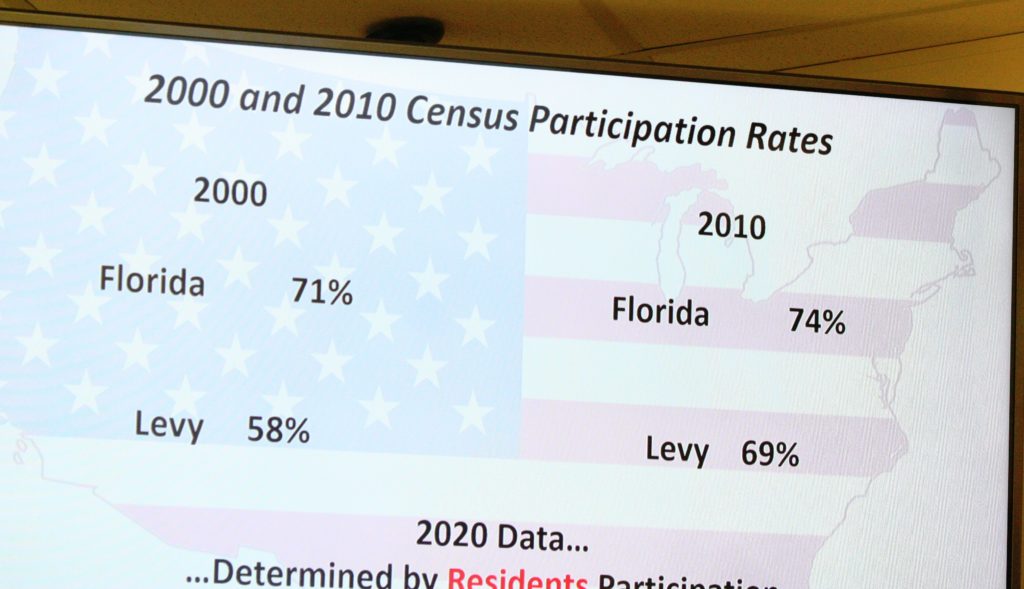
The Census Bureau will count people who are experiencing homelessness over a three day period – March 30 through April 1. The agency will count people in shelters, at soup kitchens, at mobile food vans, on streets and at locations such as under bridges.
Spotlight founder Linda Cooper asked if the census would track immigrant workers because they also use government resources. Pyle said they would be counted and she agreed they do use resources.
“We don’t use the word track. We don’t want to use the word track, but if they are illegal they should be counted,” Pyle said. “They are using resources and they are counted and how they are captured if they don’t have a residence is we have different programs for them.”
She added, “People that live in shelters and hospitals and dormitories, things of that nature; if they’re living under bridges, if they are living on the street, if they are living in a field, we do have individuals that are working with servicing that entity; we work with law enforcement to help identify and capture those people because they are counted the same way as you and I.”
“They are using our resources,” Cooper said.
“That’s correct,” Pyle responded.
Cooper asked how the Census Bureau would know if someone didn’t self- respond.
“They work with a database built about two years ago by the Census Bureau. Also, they work with planning and development as the numbers come in. This will say who has responded. They will have the names of individuals who have not responded. That’s when they will dispatch enumerators,” Pyle said.
Sally Ann Collins asked how the Census Bureau would prevent people from Maryland and New York from coming down here and being counted twice.
“They do have quality control measures based on people’s date of birth and home address. You should only be responding to one place. There are a lot of people who own multiple homes. That is a concern. How do you prevent people from committing fraud intentionally? There are algorithms, there’s quality control measures that the U.S. Census Bureau uses; will I tell you it is guaranteed 100 percent? I’m not going to tell you that. But there are things that are in place for that,” Pyle responded.
She added, “I recently went to a meeting where there were geographers and statisticians; the question was asked can you delineate what those things are to prevent that; they said they would not even discuss that with us because they were concerned that in turn would cause people to try to circumvent; that is a valid concern.”
——————–
Board of County Commission Regular Meeting February 18, 2020; Posted February 23, 2020


